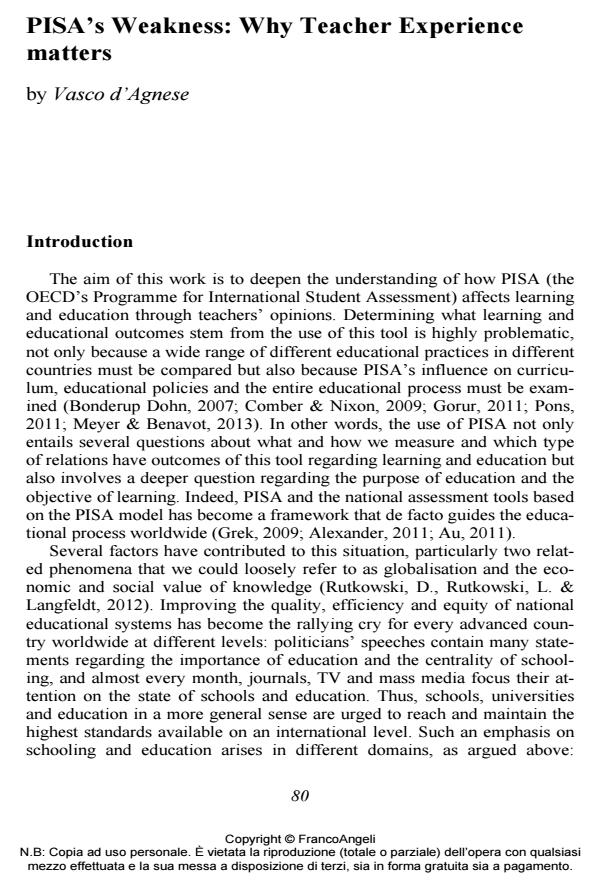PISA’s Weakness: Why Teacher Experience matters
Journal title EDUCATIONAL REFLECTIVE PRACTICES
Author/s Vasco d’Agnese
Publishing Year 2017 Issue 2017/1
Language English Pages 16 P. 80-95 File size 210 KB
DOI 10.3280/ERP2017-001006
DOI is like a bar code for intellectual property: to have more infomation
click here
Below, you can see the article first page
If you want to buy this article in PDF format, you can do it, following the instructions to buy download credits

FrancoAngeli is member of Publishers International Linking Association, Inc (PILA), a not-for-profit association which run the CrossRef service enabling links to and from online scholarly content.
The aim of this study is to deepen the understanding of the ways in which PISA (the OECD’s Programme for International Student Assessment) impacts learning and education by analysing teacher feedback. Central to this study is the belief that teachers’ knowledge and experience are legitimate resources for assessing, correcting, and updating a) educational policies and b) curriculum and educational practices. The research involved 39 secondary school teachers who taught 15-year-olds in three urban schools. Each of the teachers had been in service for between 8 and 35 years. The research was conducted in southern Italy in three high schools chosen from the PISA sample. The research design combines semi-structured interviews, group interviews, and group discussions conducted with teachers involved in PISA, either as references or as teachers of classrooms involved in the PISA survey. Based on the data, PISA raises five problems: a) a learning problem: students learn to respond to a pre-specified problem rather than to develop their own inquiries, and they are not stimulated to develop meta-awareness about their own learning processes; b) a relational problem: the relationship between teachers and students is established externally and framed by the test; c) an educational problem: the role of education in helping students face the unforeseen is denied by PISA; d) an assessment problem: one tool is not sufficient to undertake a complex task such as student assessment; and e) a problem concerning the role of schools, teachers and democracy.
Vasco d’Agnese, PISA’s Weakness: Why Teacher Experience matters in "EDUCATIONAL REFLECTIVE PRACTICES" 1/2017, pp 80-95, DOI: 10.3280/ERP2017-001006